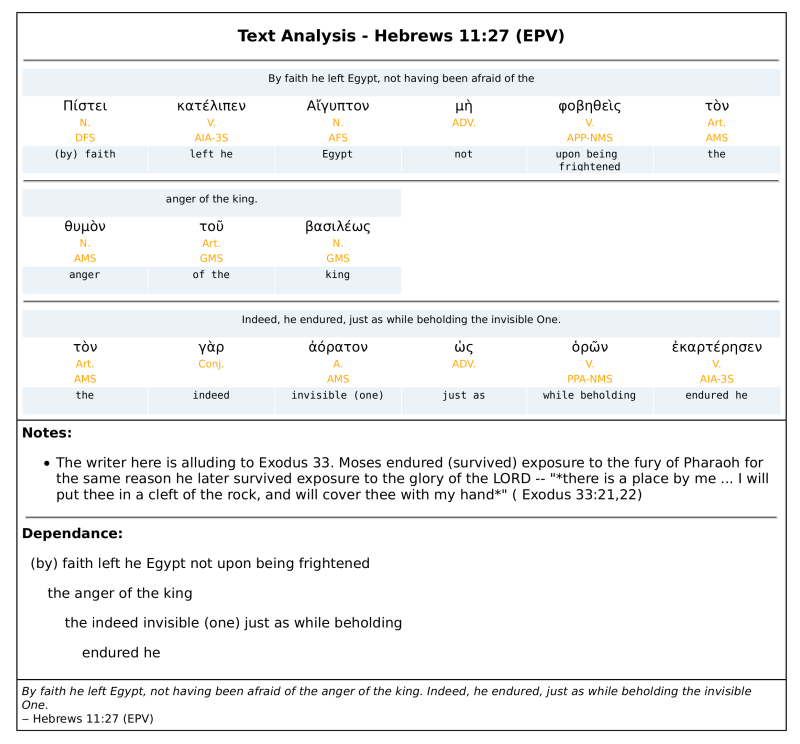The apostle Paul explains that faith and sight are antithetical. Faith is always related to that which one does not and cannot see:
NIV Romans 8: 24For in this hope we were saved. But hope that is seen
is no hope at all. Who hopes for what they already have? 25But if we
hope for what we do not yet have, we wait for it patiently.
Hebrews 11:1-3 explains that God has arranged the ages in such a way that the future is always invisible to us and we must trust God by faith in hope:
1Now faith is confidence in what we hope for and assurance about what
we do not see. 2This is what the ancients were commended for. 3By
faith we understand that the universe was formed at God’s command, so
that what is seen was not made out of what was visible.
In the balance of the chapter he illustrates this by way of illustration through the lives of various characters in Biblical history, including Moses. Of Moses he says that he persisted by seeing God with the eyes of faith. That is, though he could not see God with his eyes he acted for a future that God had convinced him was to be:
NIV Hebrews 11: 24By faith Moses, when he had grown up, refused to be
known as the son of Pharaoh’s daughter. 25He chose to be mistreated
along with the people of God rather than to enjoy the fleeting
pleasures of sin. 26He regarded disgrace for the sake of Christ as of
greater value than the treasures of Egypt, because he was looking
ahead to his reward. 27By faith he left Egypt, not fearing the
king’s anger; he persevered because he saw him who is invisible.
28By faith he kept the Passover and the application of blood, so that
the destroyer of the firstborn would not touch the firstborn of
Israel.
Had he actually seen God he would not have been walking by faith but by sight:
New International Version 2 Cor 5:7 For we live by faith, not by
sight.
Faith is essential to pleasing God:
New International Version Hebrews 11:6 And without faith it is
impossible to please God, because anyone who comes to him must believe
that he exists and that he rewards those who earnestly seek him.
Faith in the gospel of Jesus Christ, particularly in the fact that God raised him from the dead is the basis of justification that is offered to all men now in the gospel age:
NIV Romans 10: 5Moses writes this about the righteousness that is by
the law: “The person who does these things will live by them.”a 6But
the righteousness that is by faith says: “Do not say in your heart,
‘Who will ascend into heaven?’ ”(that is, to bring Christ down) 7“or
‘Who will descend into the deep?’ ”(that is, to bring Christ up from
the dead). 8But what does it say? “The word is near you; it is in
your mouth and in your heart,” that is, the message concerning faith
that we proclaim: 9If you declare with your mouth, “Jesus is Lord,”
and believe in your heart that God raised him from the dead, you will
be saved. 10For it is with your heart that you believe and are
justified, and it is with your mouth that you profess your faith and
are saved. 11As Scripture says, “Anyone who believes in him will never
be put to shame.” 12For there is no difference between Jew and
Gentile—the same Lord is Lord of all and richly blesses all who call
on him, 13for, “Everyone who calls on the name of the Lord will be
saved.”
